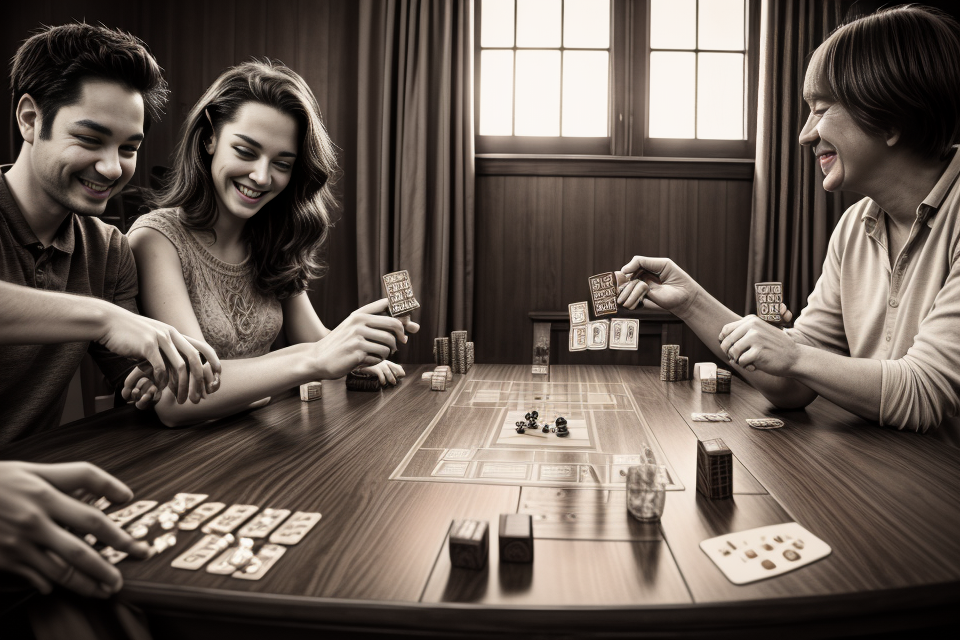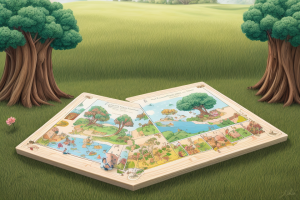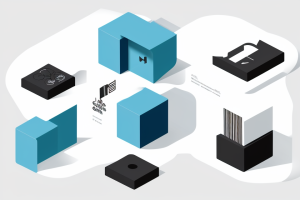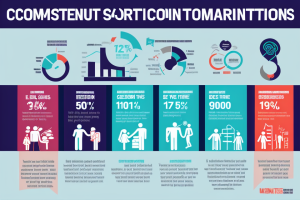
Are you looking for a way to unwind and ease your anxiety? Have you considered turning to board games as a potential solution? The idea of using board games as a tool to alleviate anxiety may seem unusual, but it’s gaining traction among mental health professionals and gamers alike.
Board games can provide a welcome distraction from the worries and stresses of daily life, allowing players to focus on the game and forget their troubles for a while. They also encourage social interaction, which can be particularly beneficial for those who feel isolated or withdrawn due to anxiety.
But do board games really have the power to help alleviate anxiety? In this article, we’ll explore the potential benefits of board games for mental health, and examine the science behind these claims. So whether you’re a seasoned gamer or a curious onlooker, read on to discover how board games could be the key to a less anxious life.
There is some evidence to suggest that board games can help alleviate anxiety. Playing board games can provide a sense of control and predictability, which can be calming for individuals with anxiety. Additionally, many board games involve strategic thinking and problem-solving, which can help improve cognitive function and reduce stress levels. However, it’s important to note that not all board games may be effective for anxiety reduction, and some individuals may find certain games to be more helpful than others. It’s always a good idea to consult with a mental health professional if you’re struggling with anxiety, as they can provide personalized recommendations and support.
What is Anxiety?
Understanding the different types of anxiety
Anxiety is a normal human emotion that is characterized by feelings of worry, nervousness, and fear. It is a natural response to stressful situations and can help individuals prepare for and respond to challenges. However, for some people, anxiety can become excessive and interfere with daily life. There are several types of anxiety disorders, including:
- Generalized anxiety disorder (GAD): This type of anxiety is characterized by persistent and excessive worry about a variety of everyday events and activities. People with GAD may feel anxious about work, school, family, health, and other issues.
- Panic disorder: Panic disorder is characterized by sudden and intense episodes of fear or discomfort that reach a peak within minutes. These episodes, known as panic attacks, can cause physical symptoms such as heart palpitations, shortness of breath, and dizziness.
- Social anxiety disorder: Social anxiety disorder is characterized by intense fear or anxiety about social situations. People with this disorder may feel anxious about being judged or evaluated by others, and may avoid social situations as a result.
- Phobias: Phobias are intense fears or anxieties about specific objects or situations. Common phobias include fear of heights, fear of flying, and fear of public speaking.
- Obsessive-compulsive disorder (OCD): OCD is characterized by repetitive thoughts or behaviors that are difficult to control. People with OCD may experience intrusive thoughts or feelings of anxiety that are difficult to shake, and may engage in repetitive behaviors or rituals in an attempt to reduce their anxiety.
Understanding the different types of anxiety is important for identifying the specific symptoms and triggers that may be contributing to an individual’s anxiety. By understanding the different types of anxiety, individuals can work with their healthcare providers to develop effective treatment plans that address their specific needs and concerns.
Symptoms of anxiety
Anxiety is a normal human emotion that everyone experiences at some point in their lives. It is characterized by feelings of worry, nervousness, and fear. However, for some people, anxiety can become so overwhelming that it interferes with their daily lives.
Symptoms of anxiety can vary from person to person, but some common symptoms include:
- Restlessness: feeling on edge, having a sense of restlessness, and being unable to sit still
- Irritability: feeling easily agitated, impatient, and having a short temper
- Fear: feeling fearful or apprehensive about everyday situations
- Heart palpitations: feeling like your heart is racing or skipping a beat
- Difficulty concentrating: having trouble focusing or paying attention to tasks
- Sweating: excessive sweating or feeling cold and clammy
- Muscle tension: feeling tense and having muscle spasms or cramps
- Insomnia: having trouble falling asleep or staying asleep
- Fatigue: feeling tired and run down, even after getting enough sleep
- Gastrointestinal issues: experiencing stomachaches, diarrhea, or other digestive problems
These symptoms can range from mild to severe and can have a significant impact on a person’s quality of life. While some people may seek treatment for their anxiety through therapy or medication, others may turn to alternative methods such as board games to help alleviate their symptoms.
The Connection Between Board Games and Anxiety
How board games can reduce anxiety
One of the ways that board games can help alleviate anxiety is by providing a structured and predictable environment. In a world that can often feel chaotic and unpredictable, the rules and patterns of a board game offer a sense of control and stability. This can help to reduce feelings of uncertainty and anxiety, as players know what to expect from the game and can focus on making strategic decisions rather than worrying about the unknown.
Another way that board games can help reduce anxiety is by promoting social interaction and connection. Many board games involve working together with other players to achieve a common goal, which can foster a sense of community and belonging. This can be particularly beneficial for individuals who may feel isolated or disconnected, as it provides an opportunity to connect with others in a low-pressure setting.
Additionally, board games can help to distract individuals from their worries and concerns. Focusing on the game and making strategic moves can help to take the mind off of stressful thoughts and feelings, providing a temporary escape from anxiety.
Overall, board games can provide a number of benefits for individuals looking to reduce their anxiety. By offering a structured and predictable environment, promoting social interaction and connection, and providing a distraction from worries and concerns, board games can be a valuable tool for managing anxiety and promoting overall well-being.
Studies on the effectiveness of board games in reducing anxiety
Several studies have been conducted to explore the potential benefits of board games in reducing anxiety. While the research is still in its early stages, the findings so far suggest that certain board games may have a positive impact on individuals struggling with anxiety.
One study conducted by the University of Cambridge found that playing board games can improve cognitive function and reduce symptoms of anxiety in individuals with social anxiety disorder. The study involved 108 participants who were randomly assigned to either a board game group or a control group. The board game group played a cooperative board game, while the control group engaged in a non-board game activity. The results showed that the board game group experienced a significant reduction in anxiety symptoms compared to the control group.
Another study conducted by the University of Maryland found that playing board games can also improve mood and reduce stress levels in individuals with chronic stress. The study involved 147 participants who were randomly assigned to either a board game group or a control group. The board game group played a board game for 30 minutes, while the control group engaged in a non-board game activity. The results showed that the board game group experienced a significant reduction in stress levels and an improvement in mood compared to the control group.
A third study conducted by the University of California, Los Angeles found that playing board games can also improve cognitive function and reduce symptoms of anxiety in individuals with generalized anxiety disorder. The study involved 96 participants who were randomly assigned to either a board game group or a control group. The board game group played a cooperative board game, while the control group engaged in a non-board game activity. The results showed that the board game group experienced a significant reduction in anxiety symptoms compared to the control group.
Overall, these studies suggest that playing board games may have a positive impact on individuals struggling with anxiety. However, it is important to note that the effects may vary depending on the individual and the specific board game played. More research is needed to fully understand the potential benefits of board games in reducing anxiety.
Types of Board Games That Can Help With Anxiety
Puzzle and strategy games
Puzzle and strategy games are a specific type of board game that can be beneficial for individuals experiencing anxiety. These games often require players to think critically and strategically in order to solve problems and reach their goals. This type of game play can help to improve cognitive function and reduce feelings of stress and anxiety.
Some examples of puzzle and strategy games that may be helpful for individuals with anxiety include:
- Sudoku
- Crosswords
- Chess
- Checkers
- Scrabble
- Risk
These games can be played alone or with others, and can be a great way to engage in problem-solving and critical thinking while also reducing feelings of anxiety.
Cooperative games
Cooperative games are a specific type of board game that is designed to be played by multiple players who work together towards a common goal. In these games, players must collaborate and communicate with one another in order to achieve success.
Cooperative games have been found to be particularly effective in reducing anxiety because they encourage social interaction and teamwork. By working together towards a common goal, players are able to build trust and develop a sense of community. This sense of community can help to reduce feelings of isolation and loneliness, which are common triggers for anxiety.
Additionally, cooperative games often require players to think critically and strategically, which can help to improve problem-solving skills and boost self-confidence. This can be particularly beneficial for individuals who struggle with anxiety, as it can help to reduce feelings of helplessness and powerlessness.
Examples of popular cooperative games include “Pandemic,” “Forbidden Island,” and “Mansions of Madness.” These games typically involve players working together to solve puzzles, complete tasks, and overcome obstacles, all while building a sense of camaraderie and teamwork.
Overall, cooperative games can be a valuable tool for individuals looking to reduce their anxiety levels. By promoting social interaction, teamwork, and critical thinking, these games can help to improve mood, boost self-confidence, and build a sense of community.
Relaxation games
Relaxation games are a type of board game that is specifically designed to help individuals manage and reduce their anxiety levels. These games are often low-pressure and require minimal strategy, making them ideal for individuals who are feeling overwhelmed or stressed. Some examples of relaxation games include:
- Bubble Tea: In this game, players take turns selecting bubbles from a teapot and adding them to their tea cup. The goal is to fill up the tea cup without spilling the tea or dropping the bubbles. This game is simple and requires minimal thought, making it perfect for individuals who are looking to unwind and relax.
- Jigsaw Puzzles: Jigsaw puzzles are a classic board game that can help individuals reduce their anxiety levels. Puzzles require players to focus on the task at hand, which can help distract them from any negative thoughts or feelings. Additionally, completing a puzzle can provide a sense of accomplishment and pride, which can boost self-esteem and reduce anxiety.
- Yoga Board Game: Yoga is a well-known practice that can help individuals manage their anxiety levels. This board game is designed to mimic a yoga class, with players following along with the instructions on the board to complete various poses and stretches. This game can help individuals relax and find their inner peace, while also improving flexibility and balance.
Overall, relaxation games are a great option for individuals who are looking to reduce their anxiety levels in a low-pressure environment. These games are easy to play and require minimal thought, making them ideal for individuals who are feeling overwhelmed or stressed. Whether you prefer bubble tea, jigsaw puzzles, or yoga, there is a relaxation game out there that can help you unwind and reduce your anxiety levels.
Tips for Choosing the Right Board Game for Anxiety Relief
Consider the type of anxiety you have
When choosing a board game to help alleviate anxiety, it’s important to consider the type of anxiety you have. Different types of anxiety may require different approaches and strategies, and certain board games may be more effective for specific types of anxiety than others. Here are some tips to consider:
- Generalized Anxiety Disorder (GAD): For individuals with GAD, board games that promote relaxation and mindfulness may be beneficial. Games that involve slow, deliberate gameplay and focus on strategy rather than luck can help reduce anxiety levels. Examples of such games include chess, Go, and Carcassonne.
- Social Anxiety Disorder: For individuals with social anxiety, board games that involve social interaction but do not involve direct competition may be helpful. Games that encourage cooperation and teamwork can help build confidence and reduce anxiety levels. Examples of such games include Pandemic, Forbidden Island, and Forbidden Desert.
- Obsessive-Compulsive Disorder (OCD): For individuals with OCD, board games that involve repetitive, pattern-based gameplay may be helpful. Games that require players to follow specific rules or patterns can help reduce compulsive behaviors and provide a sense of control. Examples of such games include Sudoku, Connect Four, and Tic-Tac-Toe.
- Post-Traumatic Stress Disorder (PTSD): For individuals with PTSD, board games that provide a sense of control and allow players to predict and prepare for potential outcomes may be helpful. Games that involve strategy and planning can help reduce feelings of helplessness and increase a sense of control. Examples of such games include Risk, Stratego, and Axis & Allies.
By considering the type of anxiety you have, you can choose a board game that is more likely to be effective in reducing your anxiety levels.
Play with people you feel comfortable with
When it comes to using board games as a tool for anxiety relief, it’s important to choose the right game and the right group of people to play with. One of the most crucial factors in creating a positive and calming environment is to play with individuals whom you feel comfortable and at ease around.
Playing with people you feel comfortable with can have a significant impact on your overall experience and ability to relax while playing the game. If you’re playing with friends or family members who make you feel anxious or stressed, it may be more difficult to fully immerse yourself in the game and enjoy the benefits of playing.
On the other hand, playing with people who make you feel calm and at ease can help you feel more relaxed and less anxious while playing the game. This can include friends, family members, or even strangers who you meet through a board game group or club.
When choosing a board game to play with others, it’s important to consider the dynamics of the group and the type of game that will work best for everyone. Some board games may be more intense or competitive, while others may be more laid-back and casual. It’s important to choose a game that will be enjoyable for everyone and won’t cause unnecessary stress or anxiety.
Additionally, playing with people you feel comfortable with can also help to foster a sense of community and connection. Playing board games with others can be a great way to socialize and build relationships with others who share similar interests. This can help to reduce feelings of isolation and loneliness, which can contribute to anxiety and other mental health issues.
In conclusion, playing with people you feel comfortable with is an important factor to consider when choosing a board game for anxiety relief. Playing with individuals who make you feel calm and at ease can help to create a positive and calming environment, which can in turn help to alleviate anxiety symptoms. When choosing a board game to play with others, it’s important to consider the dynamics of the group and choose a game that will be enjoyable for everyone involved.
How to Incorporate Board Games into Your Anxiety Management Plan
Scheduling game time
One effective way to incorporate board games into your anxiety management plan is by scheduling game time. This means setting aside a specific time each day or week for playing board games, and treating it as a non-negotiable commitment. By scheduling game time, you create a routine that can help reduce the unpredictability and stress associated with anxiety.
Scheduling game time also helps you to prioritize self-care and relaxation, which can be particularly beneficial for individuals who struggle with anxiety. It can be tempting to focus on work or other responsibilities, but taking time for yourself is essential for maintaining overall well-being. By scheduling game time, you create a space in your life for relaxation and enjoyment, which can help reduce feelings of overwhelm and stress.
Moreover, scheduling game time can also provide a sense of structure and predictability, which can be particularly helpful for individuals with anxiety. Knowing that you have a set time for playing board games can help reduce the fear of the unknown and provide a sense of control over your daily routine. This sense of control can help alleviate anxiety symptoms and improve overall mental health.
However, it is important to note that scheduling game time should not be seen as a cure for anxiety. Rather, it is one tool that can be used in conjunction with other anxiety management strategies, such as therapy, medication, and mindfulness practices. It is also important to be mindful of your own needs and limitations, and to adjust your game time schedule accordingly. Some days may be more challenging than others, and it is important to be gentle with yourself and to prioritize self-care when needed.
In conclusion, scheduling game time can be a useful strategy for incorporating board games into your anxiety management plan. By setting aside a specific time for playing board games, you create a routine that can help reduce stress and anxiety symptoms, while also providing a sense of structure and predictability. However, it is important to remember that scheduling game time is just one tool in the larger toolkit of anxiety management, and should be used in conjunction with other strategies as needed.
Playing games with a purpose
One way to incorporate board games into your anxiety management plan is by playing games with a purpose. This means selecting games that have been specifically designed to help alleviate anxiety or that have therapeutic benefits. These games often target different aspects of anxiety, such as reducing stress, improving social skills, or promoting mindfulness. By playing games with a purpose, you can actively work on managing your anxiety while enjoying a fun and engaging activity.
Here are some examples of board games that can help alleviate anxiety:
- Mindfulness-based games: Games like Ungame or Peaceful Mind are designed to promote mindfulness and relaxation. They often involve simple gameplay mechanics and focus on breathing, meditation, and relaxation techniques. These games can help calm your mind and reduce feelings of anxiety.
- Social skills games: Games like Codenames or Taboo are designed to improve communication and social skills. They encourage players to practice active listening, cooperation, and empathy. These games can help individuals with social anxiety develop their interpersonal skills and feel more comfortable in social situations.
- Strategy games: Games like Chess or Settlers of Catan require strategic thinking and problem-solving skills. They can help improve cognitive function and reduce feelings of anxiety by promoting a sense of control and mastery over one’s environment.
- Cooperative games: Games like Pandemic or Forbidden Island require players to work together to achieve a common goal. They promote teamwork, communication, and trust. These games can help individuals with anxiety develop a sense of connection and belonging with others.
By playing games with a purpose, you can actively work on managing your anxiety while enjoying a fun and engaging activity. These games offer a unique way to address the symptoms of anxiety and provide a sense of control and hope for individuals struggling with anxiety disorders.
Finding the right balance
One of the key factors in determining the effectiveness of board games as a tool for anxiety management is finding the right balance. This means striking a balance between the level of challenge and the level of enjoyment, as well as the complexity of the game and the amount of time spent playing.
For example, a game that is too easy may not provide enough of a challenge to keep the player engaged, while a game that is too complex may be overwhelming and increase anxiety levels. Additionally, playing for too long or too frequently can lead to burnout and may negate any potential benefits.
Finding the right balance requires some experimentation and self-awareness. It is important to pay attention to how the game makes you feel and adjust the level of difficulty or frequency of play accordingly.
Additionally, it may be helpful to try out different types of games to find one that best suits your interests and needs. Some games may be better suited for short, frequent sessions, while others may be better for longer, less frequent sessions.
Overall, finding the right balance is crucial in determining the effectiveness of board games as a tool for anxiety management. With careful consideration and experimentation, it is possible to find a game and a play style that works best for you.
The Benefits of Using Board Games to Manage Anxiety
Improved mood and reduced stress levels
Playing board games has been shown to have a positive impact on a person’s mood and stress levels. By engaging in an activity that is both enjoyable and social, individuals can distract themselves from the causes of their anxiety and improve their overall mental well-being.
One study found that people who played board games for just 30 minutes per day experienced a significant reduction in their anxiety levels, compared to those who did not engage in any such activity. This suggests that even a short amount of time spent playing board games can have a beneficial effect on mental health.
Furthermore, the social aspect of board games can also be a valuable tool for reducing stress. When people play games together, they often engage in conversation and laughter, which can help to reduce feelings of isolation and improve mood. In addition, the sense of camaraderie and teamwork that often comes with playing games can help to boost self-esteem and reduce feelings of anxiety.
Overall, playing board games can be a fun and effective way to manage anxiety, as it can improve mood, reduce stress levels, and provide a sense of social connection and support.
Better social connections
Playing board games with others has been shown to improve social connections, which can be especially beneficial for individuals struggling with anxiety.
Improved Communication Skills
Board games often require players to communicate and collaborate with one another in order to succeed. This can help individuals with anxiety develop better communication skills, which can be applied to other areas of their lives.
Increased Emotional Regulation
When playing board games, individuals may experience a range of emotions, including frustration and disappointment. Learning how to regulate these emotions can be especially helpful for individuals with anxiety, as it can improve their ability to manage their emotions in other situations.
Reduced Loneliness and Isolation
Playing board games with others can provide a sense of connection and belonging, which can help reduce feelings of loneliness and isolation. This can be especially beneficial for individuals who may struggle to connect with others due to social anxiety.
Improved Coping Mechanisms
Finally, playing board games with others can provide individuals with anxiety an opportunity to practice coping mechanisms in a safe and supportive environment. This can help individuals develop healthier ways of dealing with stress and anxiety, which can be applied to other areas of their lives.
Increased cognitive abilities
Playing board games has been found to have a positive impact on cognitive abilities. This is because many board games require strategic thinking, problem-solving, and decision-making skills. By engaging in these activities, individuals can improve their ability to focus, concentrate, and think critically.
One study conducted by the University of Vienna found that playing board games can improve cognitive function in older adults. The study found that playing board games regularly can enhance memory, attention, and spatial reasoning abilities. These improvements can have a positive impact on overall cognitive function and may help to reduce anxiety levels.
In addition to improving cognitive function, board games can also help to develop social skills. Many board games require players to work together and communicate effectively in order to win. This can help to improve social skills, such as cooperation, negotiation, and teamwork. Improved social skills can have a positive impact on mental health and may help to reduce anxiety levels.
Overall, playing board games can have a number of benefits for individuals looking to manage their anxiety. By engaging in activities that require strategic thinking, problem-solving, and decision-making skills, individuals can improve their cognitive function and develop social skills. These improvements can have a positive impact on mental health and may help to reduce anxiety levels.
The potential benefits of using board games to manage anxiety
Research has shown that playing board games can have a positive impact on mental health, particularly in managing anxiety. One potential benefit of using board games to manage anxiety is the development of cognitive skills.
Board games require players to think strategically, plan ahead, and make decisions based on incomplete information. These cognitive skills are important for managing anxiety because they help individuals develop coping mechanisms and strategies for dealing with stress and uncertainty.
Another potential benefit of using board games to manage anxiety is the promotion of social interaction. Board games are often played with others, which can provide an opportunity for individuals to connect with others and build supportive relationships. This social interaction can help individuals feel less isolated and more connected to others, which can in turn reduce feelings of anxiety.
Finally, board games can also provide a sense of control and agency, which can be particularly beneficial for individuals who feel overwhelmed by their anxiety. By choosing which games to play and making decisions within the game, individuals can take control of their environment and feel more in control of their own lives.
Overall, the potential benefits of using board games to manage anxiety are numerous and varied. By incorporating board games into their self-care routine, individuals may find that they are better able to manage their anxiety and improve their overall mental health.
The importance of finding the right games and incorporating them into your routine
Finding the right board games to help alleviate anxiety is crucial for success. It is important to consider factors such as the complexity of the game, the number of players, and the level of social interaction required. Games that are too complex or require too much downtime between turns can actually increase anxiety levels.
One key aspect of finding the right games is selecting those that promote relaxation and mindfulness. Games that encourage players to focus on the present moment, such as solitaire or puzzle games, can be particularly helpful in reducing anxiety. Additionally, cooperative games that require players to work together towards a common goal can foster a sense of community and teamwork, which can be beneficial for individuals struggling with anxiety.
Another important factor in incorporating board games into your routine is consistency. It is important to set aside dedicated time each day or week to play games, as this can help establish a sense of routine and predictability. Consistency can also help reduce the stigma associated with mental health issues and make it easier for individuals to seek help when needed.
Overall, finding the right board games and incorporating them into your routine can be a valuable tool for managing anxiety. By selecting games that promote relaxation and mindfulness, and setting aside dedicated time to play, individuals can use board games as a means of reducing anxiety and improving overall mental health.
Further research needed to fully understand the connection between board games and anxiety relief
Although some studies have shown that board games can help alleviate anxiety, more research is needed to fully understand the connection between the two. Some factors that need further investigation include:
- The type of board game: Some board games may be more effective than others in reducing anxiety. For example, cooperative games may be more beneficial than competitive games.
- The level of difficulty: Some people may find that easy or difficult games have different effects on their anxiety levels. Further research could help determine the optimal level of difficulty for anxiety relief.
- The player’s individual characteristics: Anxiety levels can vary greatly from person to person, and individual characteristics such as personality traits and previous experiences may play a role in how a person responds to playing board games. More research is needed to understand how these factors may influence the effectiveness of board games in reducing anxiety.
- The social context: Board games are often played in a social context, and the presence of other players may affect a person’s anxiety levels. More research is needed to understand how the social context of playing board games may impact anxiety relief.
Overall, while there is some evidence to suggest that board games can help alleviate anxiety, more research is needed to fully understand the connection between the two. Further studies could help identify the most effective board games and playing conditions for reducing anxiety, as well as provide insight into the underlying mechanisms behind this potential therapeutic benefit.
FAQs
1. What is anxiety?
Anxiety is a common mental health condition that involves feelings of worry, nervousness, and fear. It can interfere with daily activities and impact a person’s quality of life.
2. How does playing board games help with anxiety?
Playing board games can help alleviate anxiety by providing a distraction from negative thoughts and worries. Board games also encourage social interaction, which can help reduce feelings of isolation and loneliness. Additionally, the rules and structure of board games can provide a sense of control and predictability, which can be calming for individuals with anxiety.
3. What types of board games are best for reducing anxiety?
Any board game that promotes social interaction and provides a sense of control and predictability can be helpful for reducing anxiety. Some examples include strategy games, cooperative games, and games that involve problem-solving and decision-making.
4. Are there any specific board games that are recommended for anxiety relief?
There are many board games that can be helpful for reducing anxiety, but some popular options include Settlers of Catan, Carcassonne, and Ticket to Ride. These games are highly rated for their strategic gameplay, social interaction, and sense of control.
5. Can board games be used as a substitute for professional treatment for anxiety?
No, board games should not be used as a substitute for professional treatment for anxiety. While playing board games can be a fun and enjoyable way to reduce anxiety symptoms, it is important to seek professional help if anxiety is significantly impacting daily life. A mental health professional can provide individualized treatment plans and support to help manage anxiety.







